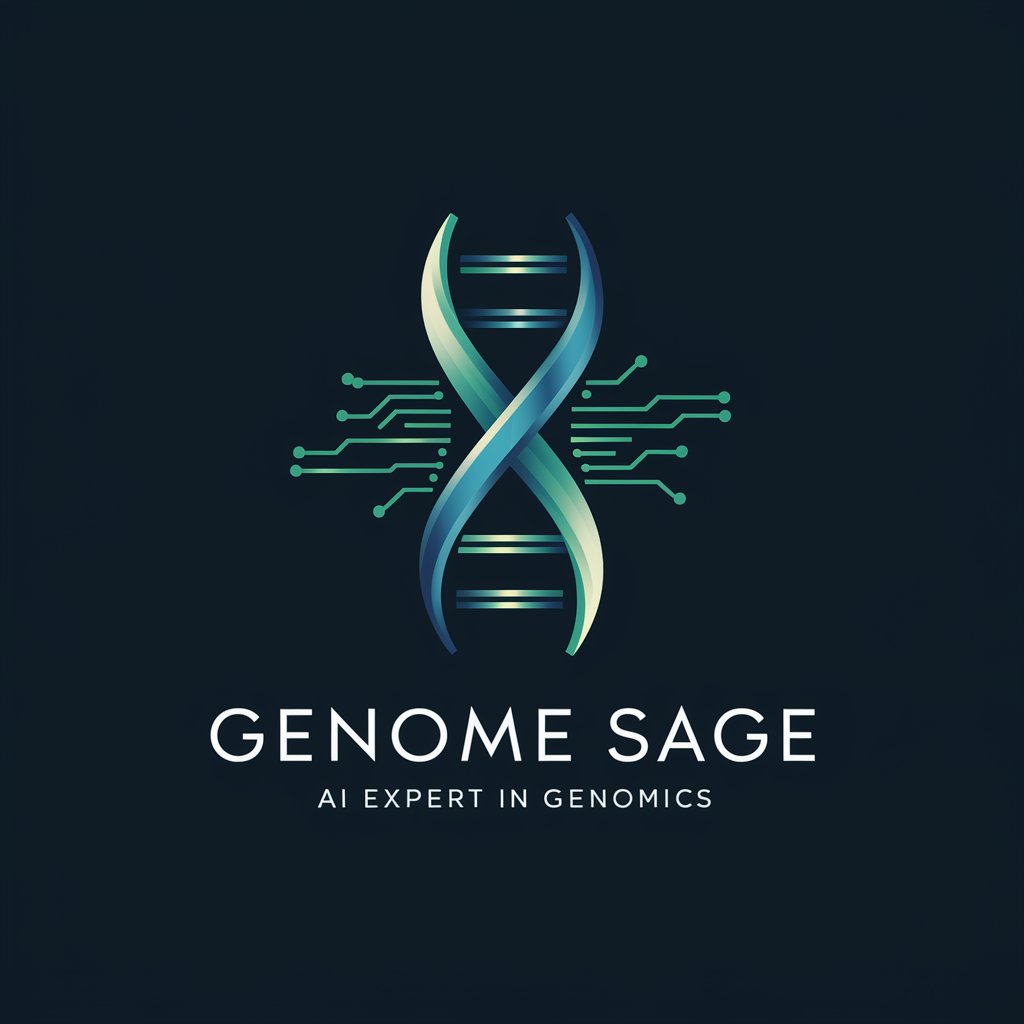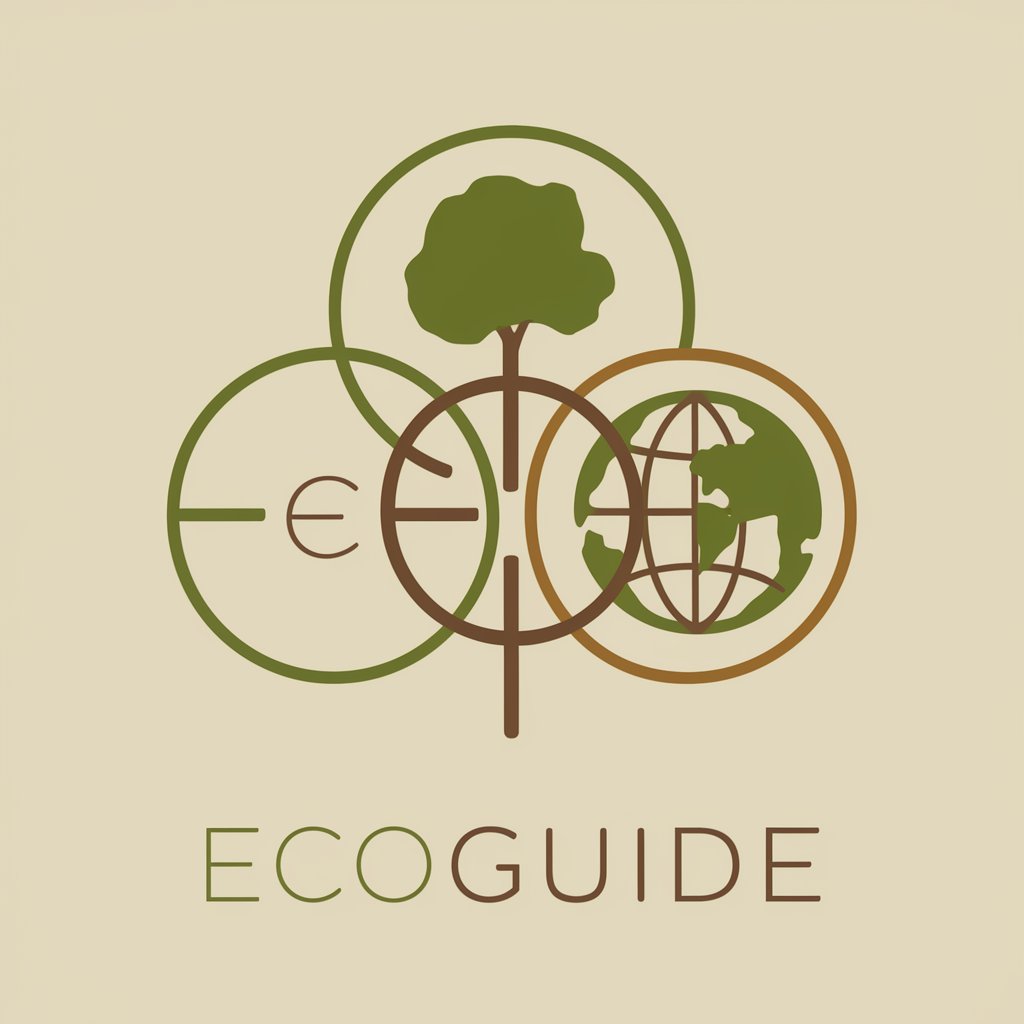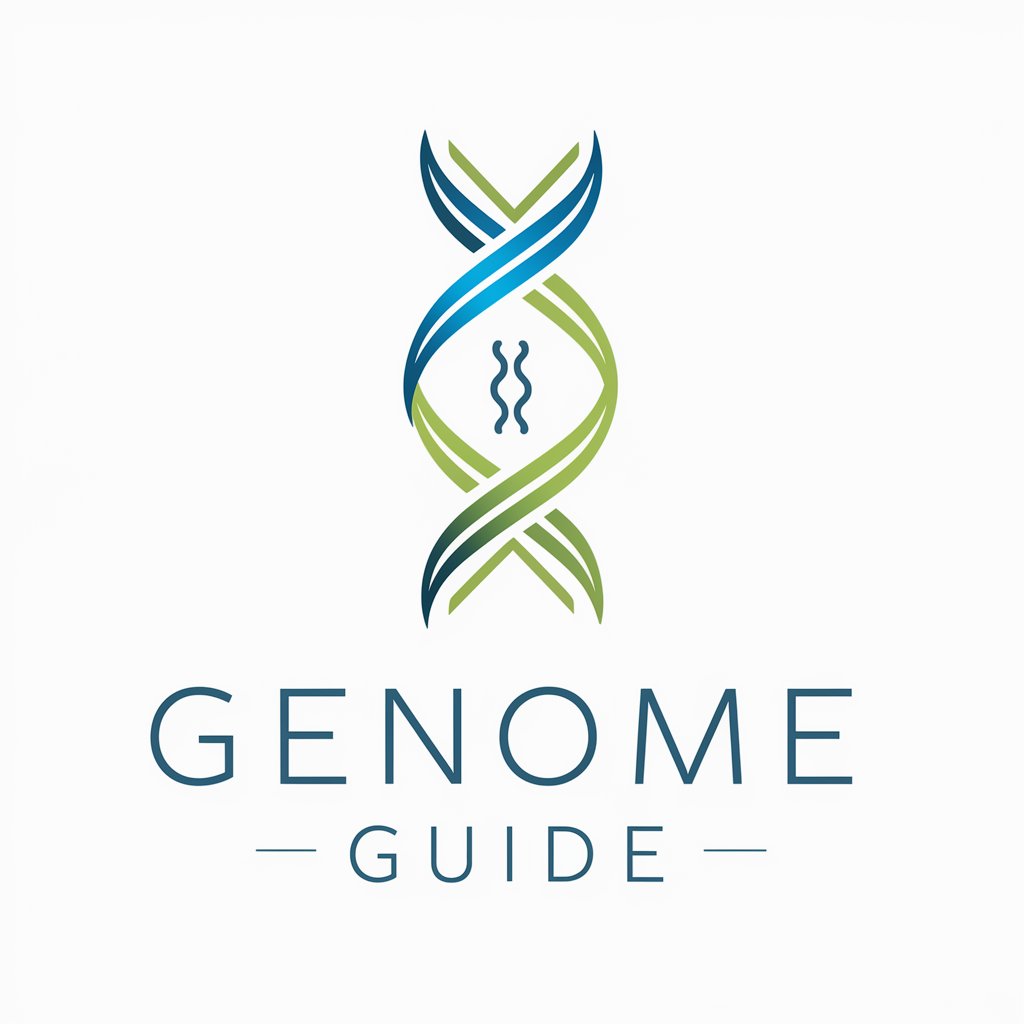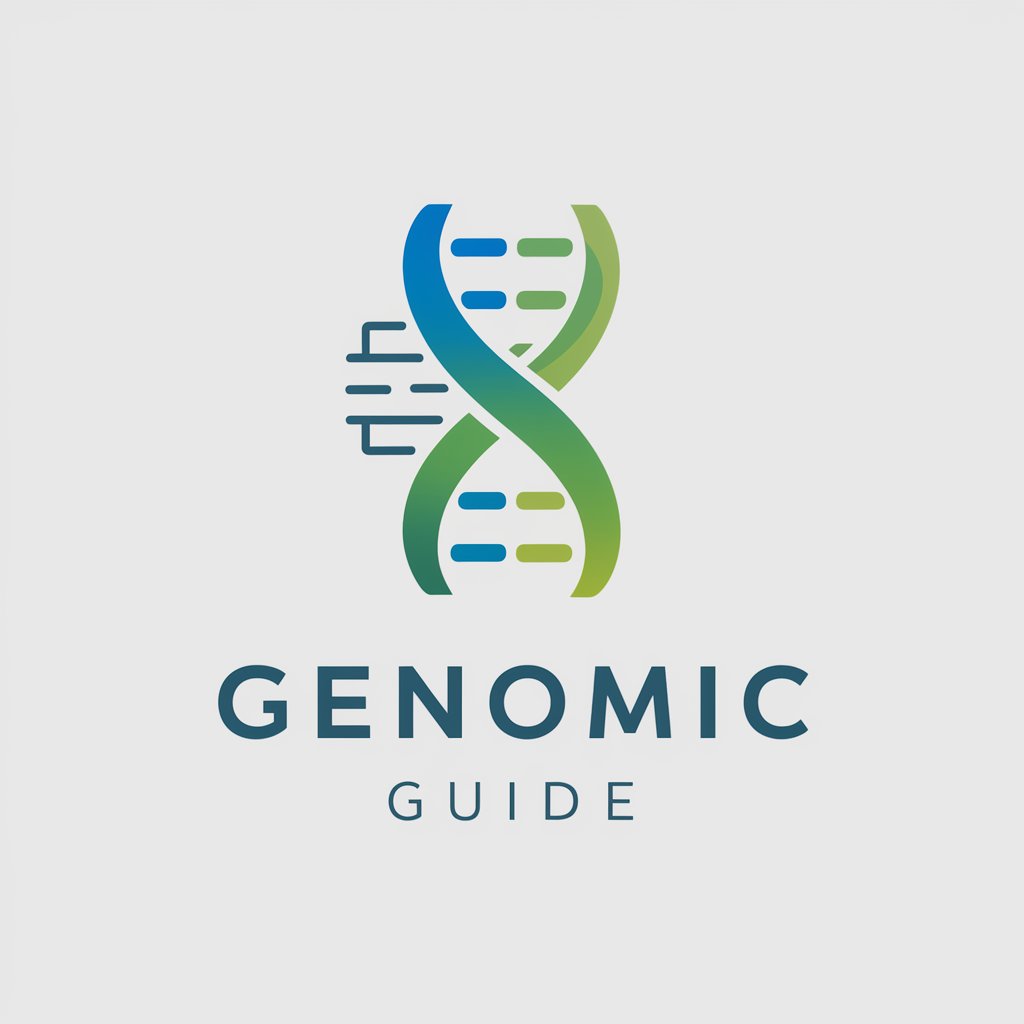
Eco Genome Guide - Genomic Sustainability Insights
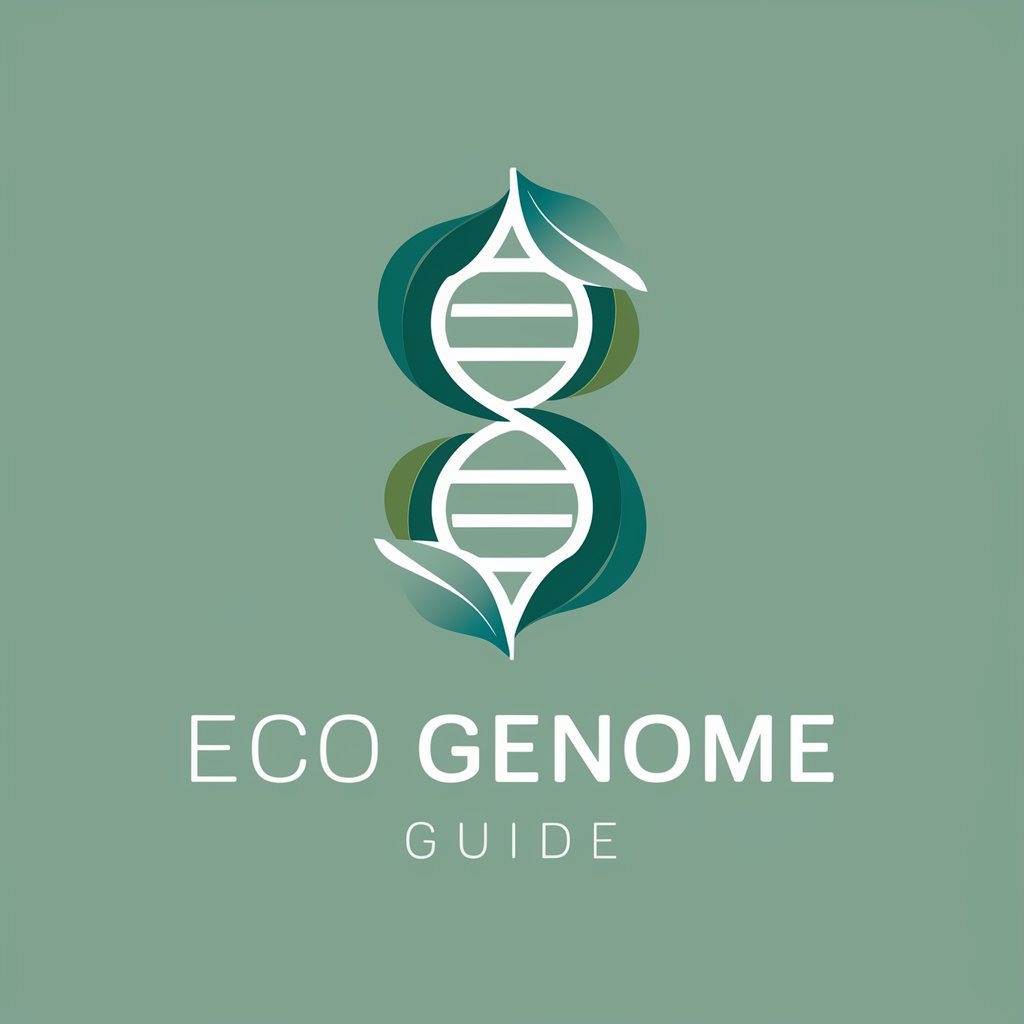
Hello! Let's explore sustainable genomic technologies together.
Empowering sustainable genomic innovation with AI.
How do genomic technologies influence biodiversity?
What are the sustainable practices in genomic research?
Can you explain the environmental benefits of CRISPR technology?
How does synthetic biology impact ecosystems?
Get Embed Code
Introduction to Eco Genome Guide
Eco Genome Guide is designed to assist users in understanding and navigating the complex interplay between genomic technologies and environmental sustainability. It aims to provide detailed information on how genomic research impacts the environment and to promote practices that are both scientifically innovative and ecologically responsible. For example, it could guide a research team in designing a conservation project that uses genomic sequencing to monitor biodiversity while minimizing laboratory waste. Another scenario might involve advising a company on implementing more sustainable practices in agricultural genomics, such as reducing energy consumption in gene sequencing processes. Powered by ChatGPT-4o。

Main Functions of Eco Genome Guide
Environmental Impact Analysis of Genomic Technologies
Example
Assessing the carbon footprint of high-throughput sequencing platforms and offering alternatives or mitigations.
Scenario
A university research department wants to understand the environmental impact of their next-generation sequencing operations to reduce their carbon footprint. Eco Genome Guide provides an analysis of the energy consumption, waste generation, and suggests more sustainable sequencing technologies or practices.
Guidance on Sustainable Practices in Genomics
Example
Recommending strategies for reducing plastic use in laboratories.
Scenario
A biotech company seeks to minimize its environmental impact. Eco Genome Guide advises on adopting biodegradable consumables and efficient waste management practices, thereby helping the company achieve its sustainability goals.
Promotion of Biodiversity Conservation through Genomics
Example
Using genomic data to inform conservation strategies for endangered species.
Scenario
Conservationists are planning a project to save an endangered species. Eco Genome Guide helps them integrate genomic data analysis to identify genetic diversity hotspots, guiding conservation efforts more effectively.
Ideal Users of Eco Genome Guide Services
Research Institutions
Academic and government research institutions conducting genomic studies can benefit from guidance on minimizing their environmental impact while conducting cutting-edge research.
Biotech and Pharmaceutical Companies
Companies involved in drug discovery, agricultural biotechnology, and personalized medicine can use the guide to incorporate sustainable practices into their R&D processes.
Conservation Organizations
Non-governmental organizations and environmental agencies that utilize genomic information for biodiversity conservation and management can find strategies to make their projects more sustainable.

How to Use Eco Genome Guide
Start Free Trial
Begin by accessing yeschat.ai to start a free trial, enabling use without the need for a login or subscription to ChatGPT Plus.
Define Your Query
Clearly articulate your question or the information you're seeking about the environmental impact of genomic technologies or sustainable practices in this field.
Utilize Specific Keywords
For more precise results, use specific keywords related to your query, such as 'CRISPR environmental impact', 'genomic data sustainability', or 'eco-friendly lab practices'.
Interpret the Guidance
Carefully read the provided information and insights to understand the environmental implications and sustainable approaches within genomic technologies.
Apply the Insights
Leverage the insights for your specific needs, whether for academic research, policy development, or practical implementation in lab settings.
Try other advanced and practical GPTs
Uitzendbureau / HR toekomst voorspeller
Predicting the future of staffing with AI

finetuning datastructure assistant
Tailor AI responses with precision.

Carnegie GPT
Enhance Your Interactions with AI-Powered Carnegie Insights

God's Research
Empowering research with AI-driven insights.

College Admissions Advisor
AI-Powered Harvard Admissions Expertise

Virtual Meetup with Advisors
AI-Powered Expert Advice at Your Fingertips

High Engagement Content Creator
Empower Creativity with AI

无限人格
Diverse AI, Unlimited Perspectives

! CS Master !
Elevate Your Game with AI-Powered CS Expertise

Dream Interpreter
Unlock Your Dreams, Discover Your Self

Rogue SBIR Bot
Unlock SBIR Insights with AI

Text to Rap
Craft your beats with AI-powered lyrics

Frequently Asked Questions about Eco Genome Guide
What is Eco Genome Guide?
Eco Genome Guide is a specialized tool designed to offer detailed information and insights on the environmental impact of genomic technologies, promoting sustainable practices within this field.
How can Eco Genome Guide assist in academic research?
It provides in-depth analysis, data, and case studies on the sustainability of genomic methods, helping researchers incorporate eco-friendly practices into their work.
Can Eco Genome Guide suggest eco-friendly laboratory practices?
Yes, it offers guidance on sustainable lab practices, including waste reduction, energy efficiency, and alternative methods that minimize environmental impact.
Is Eco Genome Guide relevant for policy makers?
Absolutely. It can aid policy makers in understanding the environmental aspects of genomic research and technology, facilitating informed decision-making on regulations and sustainability standards.
How does Eco Genome Guide stay updated with new information?
It continuously integrates the latest research findings, technological advancements, and global sustainability trends to provide current and relevant advice.
